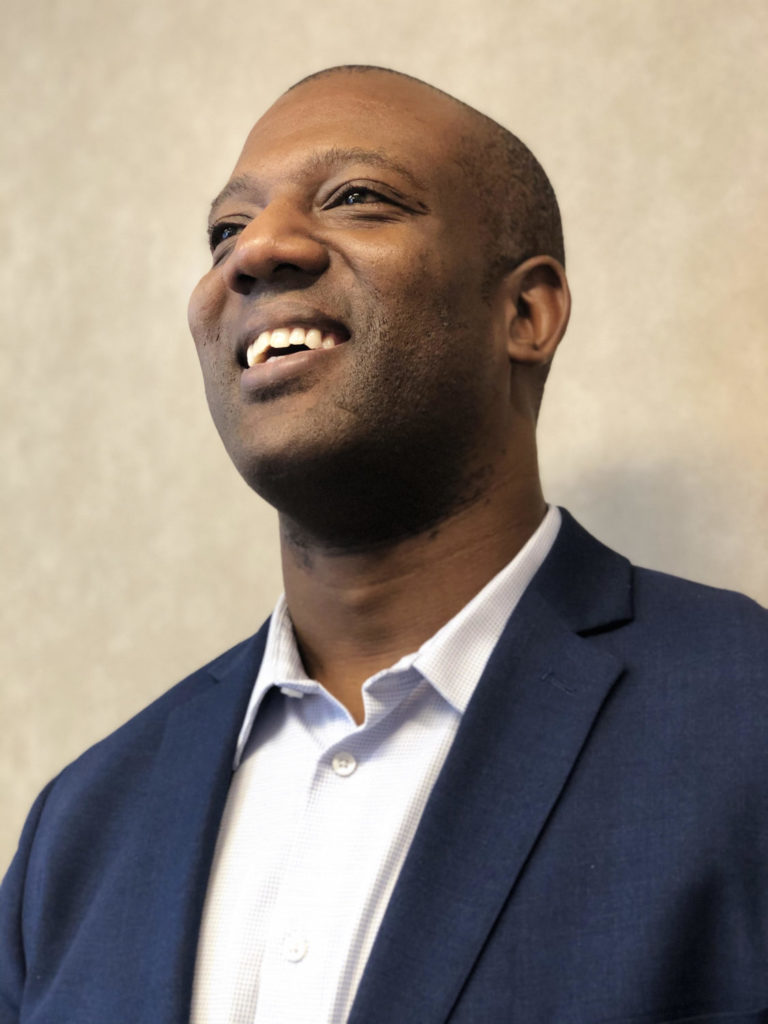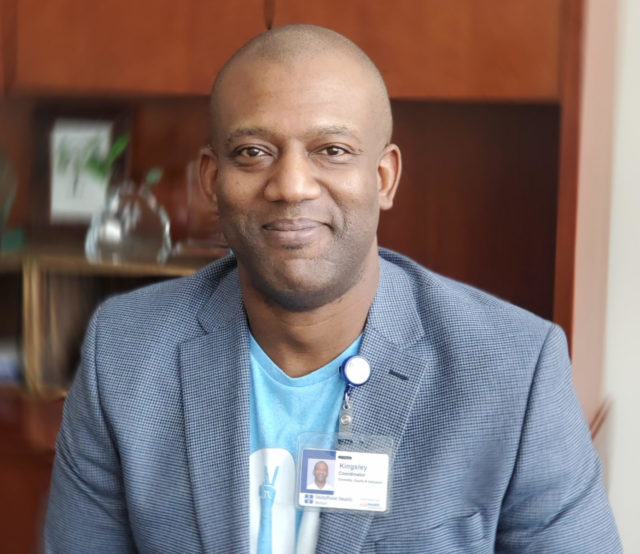As the new program manager of diversity, equity and inclusion at UnityPoint Health-Meriter, Kingsley Gobourne is addressing equity head on.
In the 10 months that Gobourne has been leading the organizational effort to improve culture and climate at UnityPoint Health-Meriter, he has created a 19-member committee dedicated to diversity and inclusion, that has already branched off into four subcommittees to focus on policy, education, engagement and workforce development.
The committee, which Gobourne said has been fully supported by senior leadership, is called “Our Journey to Equity Diversity and Inclusion.”
“We call it JEDI for short, not only because it’s easier but I’m also a Star Wars fan,” Gobourne said with a laugh.
The first two months he was there at Meriter, he conducted 38 one-on-one interviews with staff to get a pulse of the culture and “lived experience at Meriter.” He talked with senior officials, people in the lunch line and in the hallways. Using his research background, he found through the qualitative study — which included 21 people with no direct supports, eight managers and nine senior leaders — that there were racial disparities surrounding patient care, employee experience and recruitment, he said.
Of the 3,200 employees at that time, 13% identified as people of color, he said.
Gobourne quickly asked to be promoted from program coordinator to the program manager noticing that his role needed more flexibility. He was the first Diversity, Equity and Inclusion coordinator the health center had.
The first steps were putting signage up at UnityPoint Health-Meriter publicly stating their commitment to diversity and inclusion. But, Gobourne’s reach goes way beyond signage.
Focus on education
Gobourne said his big focus has been on education. Not only implicit bias education for staff, but he and a workgroup are dissecting the manager training, which he said primarily focused on the system of responsibilities for managers.
“I don’t know if we have done enough to prepare our managers to handle issues of discrimination and race, to handle issues of LGBTQ+ or veterans, or just to be able to understand what it might be from an equity lens to be a single mom and working as a nurse and resources and things they might need,” he said.

“As important as the implicit bias training is I think this is an opportunity to provide support to individuals who are working right now and maybe the only person of color in the department,” he later added. “If we can get that manager to better understand what it is to be supportive, what it is to have an equity lens and to help keep that individual engaged in that team and provide those resources that they may need …that’s a lot of the work that I’m hearing that we need to do from our staff and that’s where I want to put a lot of my focus.”
Gobourne, who has earned a sociology degree at the University of Wisconsin-Madison and a master’s degree in organizational development programs at Edgewood College, said he wants to develop employees of color to become future leaders and managers who can take on different roles in the organization.
Another committee that is under the JEDI umbrella is looking at general education for staff. He said the committee is having conversations about what diversity and equity inclusion should focus on and how the education should be delivered.
“We’re in a hospital where everyone’s having mandatory training and because of that mandatory training mentality, there’s sometimes not a lot of focus on what the content is but more so the fact that, ‘I decided to get this done,’ whether it’s for continuing ed or whatever,” he said. “We believe diversity training needs to be something that is part of someone’s lifelong learning so there has to be an initiative or an element of that individual seeking the education. Then, how do we provide it in a way that can be accessible – in a way that works with their time, their schedule and where they are as well?”
The next steps he said is analyzing the health center’s policy – not only how they are written, but how they are enforced. The committee is doing historical research and analyzing the grievances, complaints, patient records, discipline, absences and turnover and applying some demographics to it and identifying areas where the health center can improve.
Support from senior leadership
And although he knows this is a journey, the journey would not be happening if it weren’t for Meriter leadership’s dedication to diversity and inclusion, he said.
Gobourne discussed a workgroup focused on patient attendance policy regarding missed appointments. He said in an email to Madison365, the first solution that was identified to be piloted placed all the responsibility for missed appointments on the patient and therefore did not recognize social barriers to health.
Gobourne immediately voiced his objections.
“What was important about that was not that I had an objection or that I think anyone would have an objection if they had an opportunity to look through from an equity lens, but it was how that objection was heard,” he said. “So from my direct manager to the CEO, the immediate support that I had in saying, ‘We’re trusting your decision, Kingsley. And if this is something that you’re saying we should not do as an organization, then we are going to listen and support you with that.’”
He said because of that support UnityPoint Health-Meriter was able to change course on the pilot program within weeks. He said with his leadership, and the leadership of his team, he believes UnityPoint Health-Meriter has come a long way in a short amount of time.
“We could have change and it doesn’t have to take 15 years, but maybe we could have a noticeable change in three to five years,” he said. “That’s really what I’m working on. And so far, that’s what I’ve seen. And I think it starts with building great relationships with individuals, being able to acknowledge where people are, building that trust — not only with senior leaders, but for everyone in the organization.
“Now we’re to the point where I think we can be comfortable in understanding that this is going to be a long journey and that we don’t have to do it all today,” he added. “We don’t have to do it all tomorrow, but if we continue to work together people will be surprised at how far we go as an organization.”




























